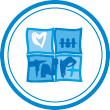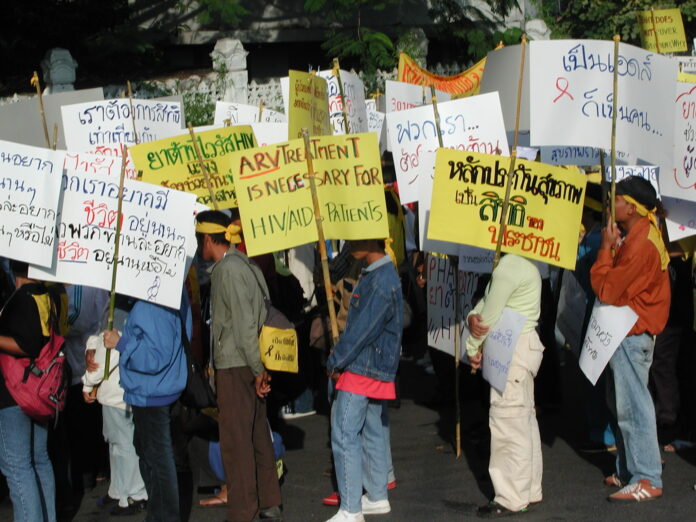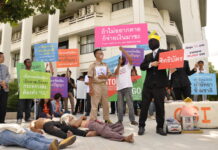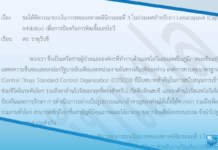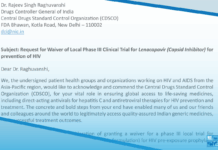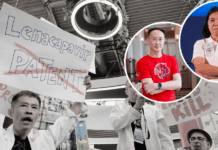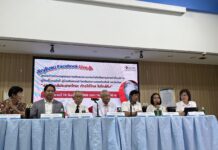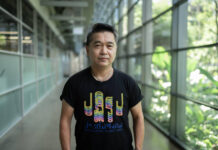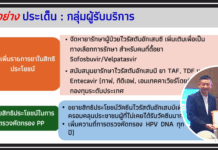In 2001, the Royal Thai Government implemented the National Health Security Scheme policy- widely known as the “30- bath scheme”. It was specified in the policy that “ARV treatment for people living with HIV/AIDS was not to be included in this benefit package”. The PLWHA network and NGO/AIDS believe that ARV treatment is a common standard treatment applied worldwide and has been proven to be able to reduce viral loads in PLWHAs, which in turn help reduce the incidence of illness and decreases the fatality rate in PLWHAs.
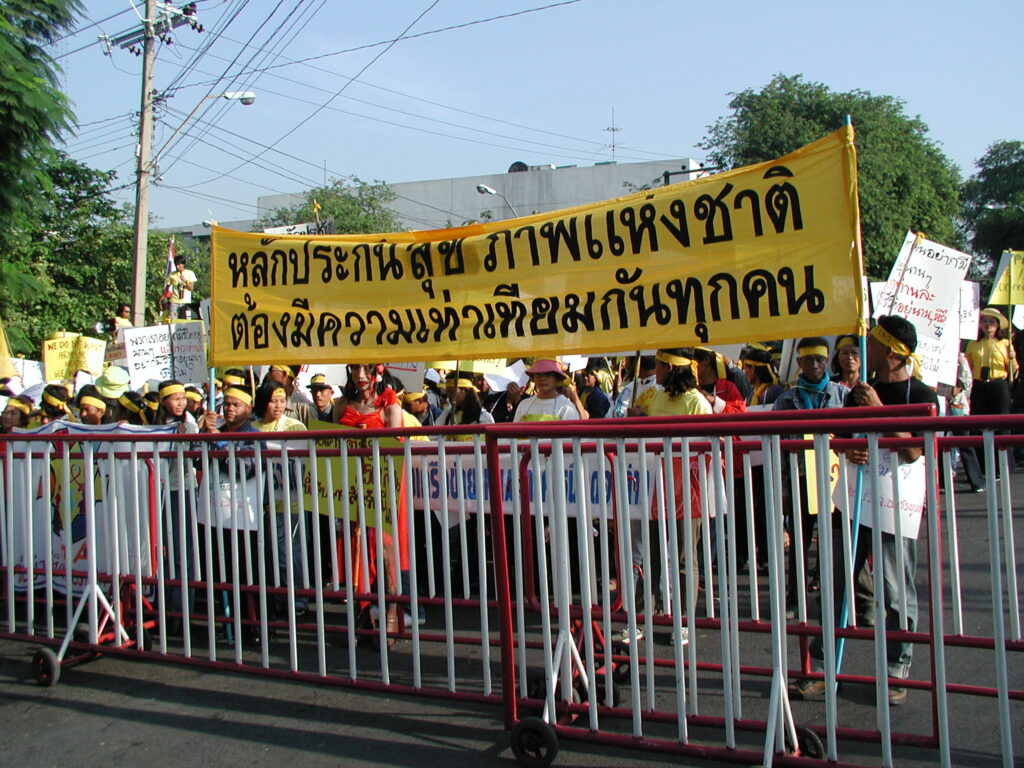
Additionally, PLWHAs have become healthier after initiating ARV therapy. It is every PLWHAs’ right to receive ARV therapy when it is needed. Consultation, discussions and campaigns were conducted by the PLWHA groups all over the country to advocate for the inclusion of ARV in the 30 baht- national health scheme.
In November 30, 2001, 1200 PLWHAs from all parts of the country demonstrated in front of parliament and met with Sudarat Kayurapandh, the then Minister of Public Health. She agreed in principle to the PLWHA demands and committed the government to include ARV into the 30-baht health scheme. The working committee, which consisted of representatives from TNP+, NGO/AIDS and the government was set up to prepare for implementation of this scheme. At that time, there were only 3,000 PLWHAs receiving ARV. The government’s approval of a budget of 50 million baht made it possible for more people to gain access to ARV.
In 2004, the MOPH announced the possibility of providing ARV to 50,000 PLWHAs.
Due to continued pressure and advocacy by TNP+ and its supporters, the National Health Security Office (NHSO) finally announced that it would include ARV in the National Health Security’s benefit package. This would come into effect as of October 1, 2005.
However, TNP+ has continued its advocacy work to ensure that ARV provision remains the right of all PLWHAs and that all health insurance schemes in the nation include ARV – including the social welfare system that at present requires co-payment.

